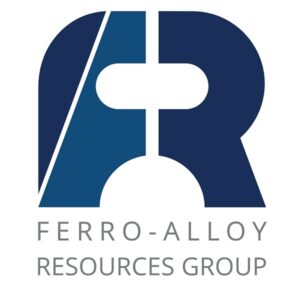Ferro-Alloy Resources is quietly developing one of the most intriguing vanadium projects in the world, with the potential to reshape the economics of vanadium production. At the heart of this opportunity lies the Balasausqandiq deposit in southern Kazakhstan—a rare and unconventional asset with low-cost processing potential and valuable by-products that could drive significant investor returns over time.
Ferro-Alloy Resources’ Balasausqandiq project, located in the Shieli district of Kyzylorda Oblast, is centred around a vast black-shale vanadium deposit first discovered in the 1940s. Unlike most global vanadium resources, which are based on vanadiferous titanomagnetite, this deposit is uniquely suited to a simpler, more cost-effective processing method, significantly reducing both capital expenditure and operating costs.
Current resource estimates sit at 33 million tonnes of ore—but that figure only accounts for the first of seven ore bodies within the company’s mining licence area. This scale positions the deposit to ultimately support a production capacity of up to 10 million tonnes of ore per year, yielding 55,000 tonnes of vanadium pentoxide annually. However, in a strategic move to manage risk and protect shareholder value, Ferro-Alloy Resources plans a phased approach, beginning with 1.65 million tonnes per year in Phase 1 and expanding to 5 million tonnes per year in Phase 2. This measured growth strategy ensures alignment with demand trends—particularly from the expanding vanadium redox flow battery sector—while allowing future stages to be funded through earnings rather than dilution.
Importantly, the Balasausqandiq deposit offers more than just vanadium. Over 8% of the ore is comprised of carbon in a form akin to carbon black—a material widely used in the rubber and tyre industries. Extensive testing has confirmed that this carbon concentrate can partially replace conventional carbon black in tyre sidewall formulations, with substitution levels of up to 10% showing no degradation in performance. Notably, the testing also revealed potential performance benefits, such as improved rolling resistance and enhanced sidewall damage resistance. The material also shows promise in ferro-silicon production, giving the company multiple commercial pathways.
The ore additionally contains molybdenum, uranium, rare earth elements, and aluminium. While not all are currently viable for extraction, the presence of such by-products presents future upside optionality as market dynamics shift.
The project enjoys robust infrastructure advantages. With access to high-voltage power lines, surfaced roads, telecommunications, and a regional railway, Ferro-Alloy Resources is well-positioned for efficient operations. The town of Shieli, located 70 km from the mine, serves as the company’s logistical hub, connected to major international corridors and just 120 km from Kyzylorda’s international airport.
Ferro-Alloy Resources Ltd (LON:FAR) is developing the giant Balasausqandiq vanadium deposit in Kyzylordinskaya oblast of southern Kazakhstan. The ore at this deposit is unlike that of nearly all other primary vanadium deposits and is capable of being treated by a much lower cost process.


